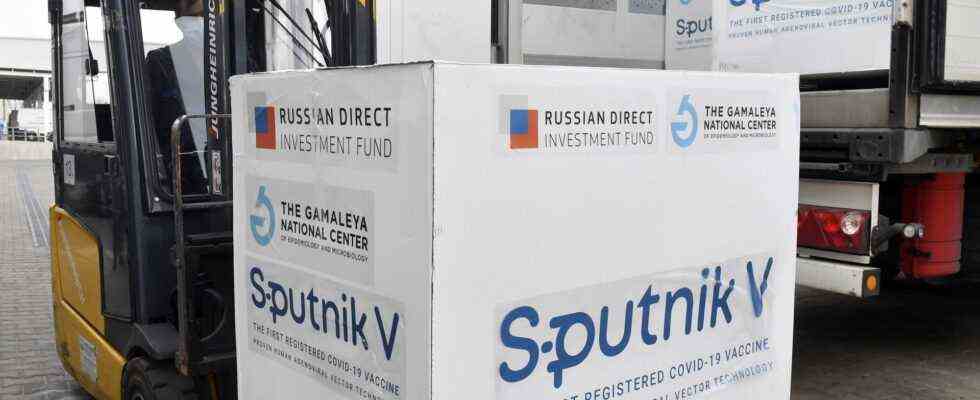Status: 11.08.2021 03:31 a.m.
A year ago, Russian President Putin announced the world’s first corona vaccine. But to this day, many do not trust the prestige object. Russia’s vaccination rate is lagging behind. Now it is becoming more and more a duty.
“As far as I know, a vaccine against the novel coronavirus infection was registered for the first time in the world this morning.” What Vladimir Putin announced in an almost casual tone during a government meeting exactly a year ago triggered a storm of enthusiasm on Russian state television.
A sensation, the main news for the world media – the first, saving vaccine against Covid-19. A Russian. Sputnik V – named after the first space satellite that the Soviet Union successfully launched into space 64 years ago. Again you were first, showed everyone.
Guinea pig for prestige project?
But this time there was no appreciative jubilation. Instead: distrust of the vaccine developed in just six months and officially approved after only two of three completed test phases. One does not want to be a guinea pig for a political prestige project – so the criticism of many Russians, which continues to this day.
“No, I don’t trust the Sputnik V vaccine,” says Evgeniya, a 30-year-old Moscow woman. “And if I had to get vaccinated, it would certainly not be with Sputnik. What effects this could have on my health in the future is not known. So no.”
Russian scientists also criticized the fact that in such a short time nothing could be said about the effectiveness and safety of the vaccine. Months after the approval, the renowned specialist journal “The Lancet” attested Sputnik V a “very high” effectiveness of over 90 percent. Even so, Russia is still struggling to catch up on its bumpy start.
More and more compulsory vaccinations
A lack of trust, delivery bottlenecks in the regions: the mass immunization that was announced at the time is out of the question today. Just one fifth of the Russian population is considered fully vaccinated. Part of it was ultimately made the decision by the authorities – like the 27-year-old university employee Marina. “I was vaccinated because there were two options at work: either get vaccinated or take unpaid leave. There were no discussions or alternatives.”
In over 40 Russian regions there is now a broad compulsory vaccination for certain industries – including education and health care as well as gastronomy. In companies, 60 percent of employees must be vaccinated.
Delta increases the pressure
Vaccinations are also compulsory at Vera’s workplace. However, she decided to do it herself, explains the 28-year-old manager. “Because I am aware of the need. First, I do not want to contract Covid and experience after-effects. Second, we need herd immunity.”
The expanding delta variant increases the pressure. In Moscow, the mayor is already promoting a third booster vaccination to increase protection. Russia has now approved a total of four of its own vaccines – but Sputnik V remains the most important figurehead. According to the state direct investment fund responsible for international marketing, the Russian vaccine is registered in 69 countries.
No EU approval yet
They are still waiting for approval in the EU. The European Medicines Agency (EMA) has been testing the vaccine since March. Just a few days ago, EU Commission President von der Leyen said that the manufacturer had not yet been able to provide enough valid data to prove the safety of Sputnik V.
The Russian vaccine is produced in Belarus, Mexico, South Korea and India, among others. As of September, the world’s largest vaccine manufacturer, the Serum Institute of India, is also expected to deliver over 300 million doses of Sputnik V per year. With this, Russia also wants to overcome its delivery problems at home and abroad.

